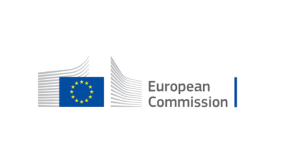SEMASC – Socio Economic Models of Amateur Sport Clubs, 101133907

Project No. 101133907
Project title: “Socio Economic Models of Amateur Sport Clubs” (SEMASC)
Project duration – 2023-10-01 2026-09-30
Project leader: Prof. dr. Vilma Čingienė
Project coordinator: UNIVERSITE DE LILLE (France)
Project partners: Institut français du Monde associatif (France), UNIVERSIDADE DE LISBOA (Portugal), ASSOCIATION EUROPEENNE DES EMPLOYEURS DU SPORT (France), MYKOLO ROMERIO UNIVERSITETAS (Lithuania), UNIWERSYTET MIKOLAJA KOPERNIKA W TORUNIU (Poland), Fundación Universidad Pascal (Argentina), INTERNATIONAL UNIVERSITY OF HEALTH, EXERCISE & SPORTS SA (LUXEMBOURG), National sports agency under the Ministry of Education (Lithuania).
Abstract: Sports associations form the basis of mass sport participation in many European countries. Amateur Sport Clubs (ASCs) are an essential component of many sport delivery systems around the world. ASCs contribute to the achievement of objectives related to various dimensions, such as sports missions as well as social missions related or not to sport such as integration, youth, health, leisure, educational, political education. For many years, amateur sports clubs have been facing significant tensions: reduction in public funding, growing instrumentalization by
public authorities, increased commercialisation and competition from private sport suppliers. At the same time, ASCs are increasingly confronted with the economic effects of financial and health crises. These multiple tensions that ASCs have to face result in a transformation of their economic model, which can lead to a shift in the organisation’s objectives and to dysfunctions.
The Socio Economic Models of Amateur Sport Clubs (SEMASC) project is a cooperation partnership between 5 European countries in close relation with one non-European partner bringing together multiple stakeholders from the non-profit sport sector (Olympic Committee, National Sport Agencies, Federations, National Institute of non-profit organisations) and researchers. The main objective of the SEMASC project is to create training materials to assist amateur sports clubs- through parameters and indicators to assess and improve their socioeconomic model. It will give federations and Olympic committees the opportunity to enable the transformation and organisational change leading to improvements and new approaches to socioeconomic model of amateur sports clubs. The second objective is to allow Olympic committees and federations to increase the resilience of ASCs. The resilience of the ASCs is becoming recently one of the most common challenges for sport organisations mainly due to the Covid-19 crisis.
The project is funded by the Erasmus Lump Sum Grants programme.